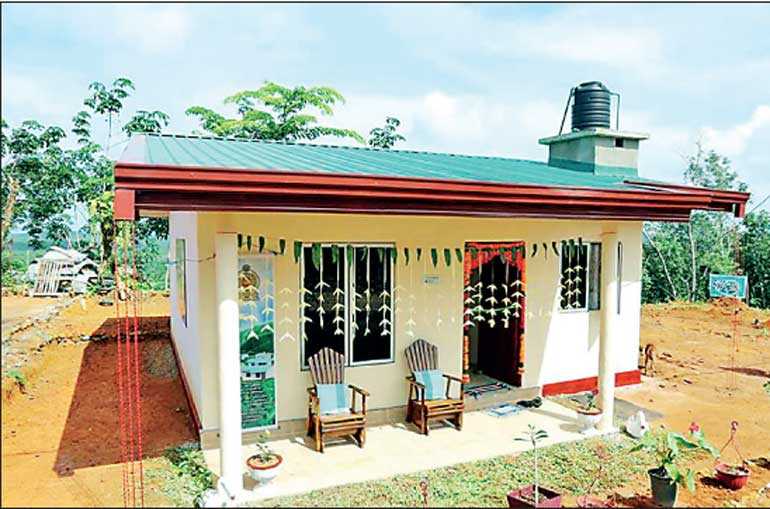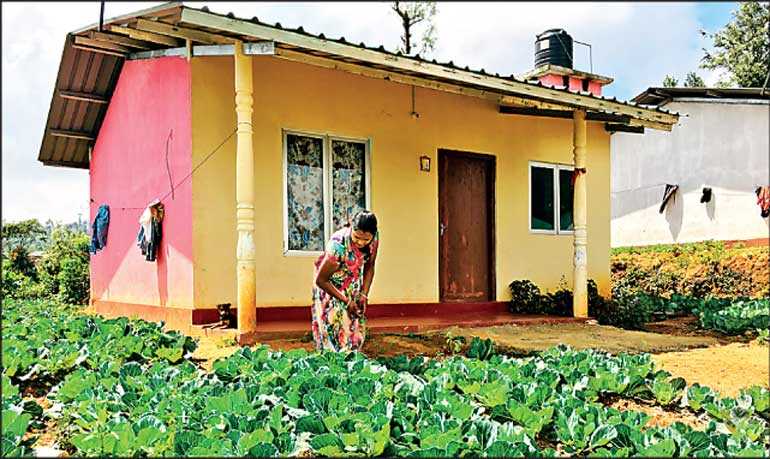Thursday Feb 26, 2026
Thursday Feb 26, 2026
Saturday, 24 October 2020 00:30 - - {{hitsCtrl.values.hits}}
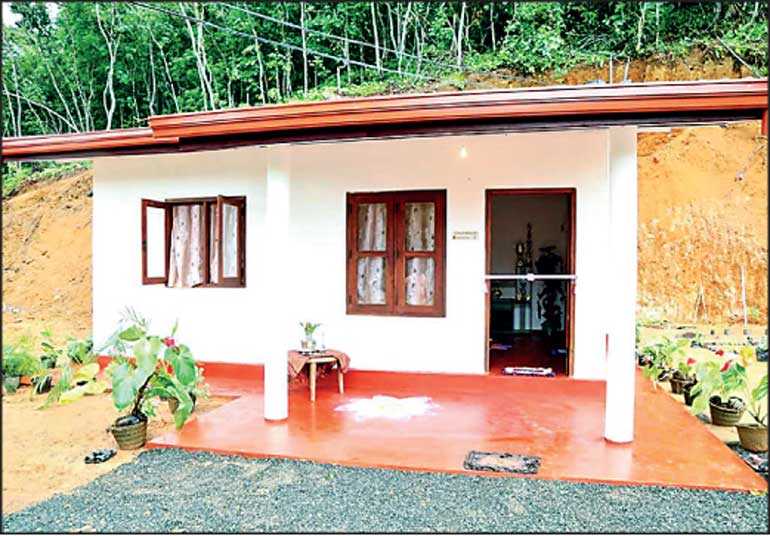
Houses built in Hulandawa Estate, Galle
The Planters’ Association of Ceylon (PA) commended the exhaustive measures taken by Regional Plantation Companies (RPC) in completing 39,150 houses for estate workers on their plantations.
In observance of World Habitat Day earlier this month, the PA said that 10,000 more houses will be constructed in the next five years and handed over to registered estate workers, by the Plantations Human Development Trust (PHDT), a tripartite organisation of RPC’s, plantation trade unions and the Government of Sri Lanka.
Currently there are 251,950 resident families on RPC estates with a total population of a little over one million, however, the total number of registered workers is only 135,000. Of the total resident families on RPC estates, 16% have got brand new houses while 57% have had their homes re-roofed.
Modular in design, each house is on a seven perch block of land with a built-up area of 550 square feet, at a cost of Rs. 1 m each. Each house comes complete with two bedrooms, a sitting area, kitchen, toilet and pipe-borne water. Surrounding the house is an area of three perches that could be used for home gardening.
“Human resource is the backbone of the industry and the various housing projects reiterate our commitment to improving the lifestyle and welfare of our worker population,” explained Planters’ Association of Ceylon Chairman Bhathiya Bulumulla, who is also the Chief Executive Officer of Aitken Spence’s Elpitiya Plantations PLC.
Bulumulla went on to note that plantation companies in Sri Lanka have continuously underscored the importance of enhancing lifestyles on estates, and have done their utmost in providing housing for the 135,000 worker population, as well as the over one million residents, most of whom are employed elsewhere.
“We have been steadfast in taking concrete steps over the past several years to improve the amenities in our estates,” he explained, while adding that re-roofing is done as an interim measure. “The demand for housing is immense, and building new housing for all takes a considerable amount of time and resources. Until families receive new housing, re-roofing will be carried out to make existing infrastructure safe.
“With the tea industry being one of the largest contributors to the national economy, the challenge of maintaining a productive workforce is vital and we need all stakeholders to know the infrastructure developments made on the estates and to view the industry positively.
“The Plantation Human Development Trust remains committed towards housing, infrastructure development, health and social welfare for its plantation workers,” added Bulumulla, who went on to note that projects are on track despite slight delays due to setbacks on account of the COVID-19 pandemic.
“However this agenda remains top priority despite the challenges we are facing in many aspects.”
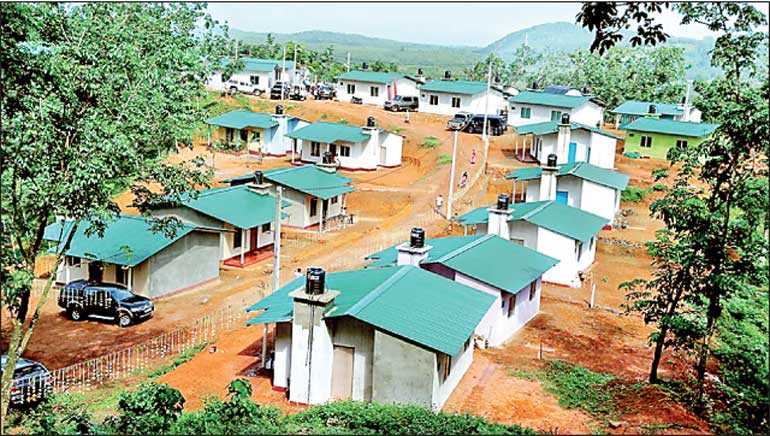
Houses built in Arapolakande Estate, Galle
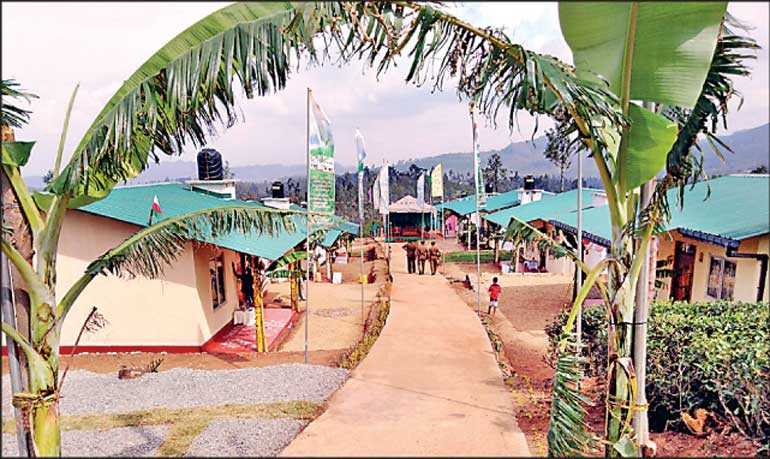
Houses built in Liddesdale Estate, Nuwara Eliya
